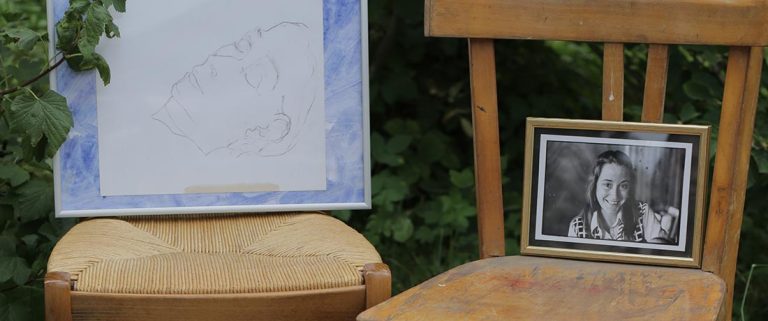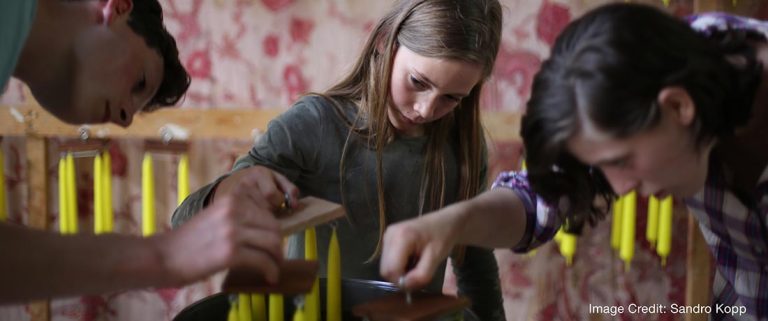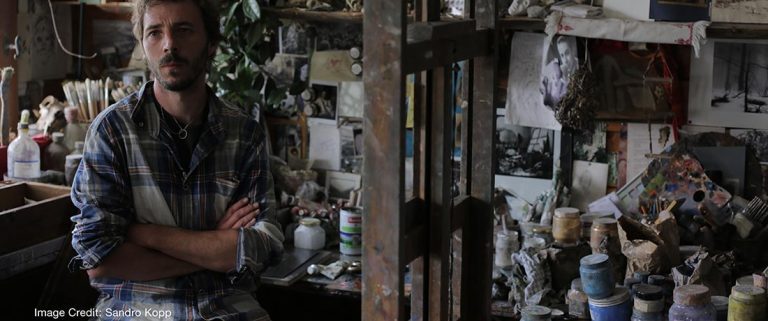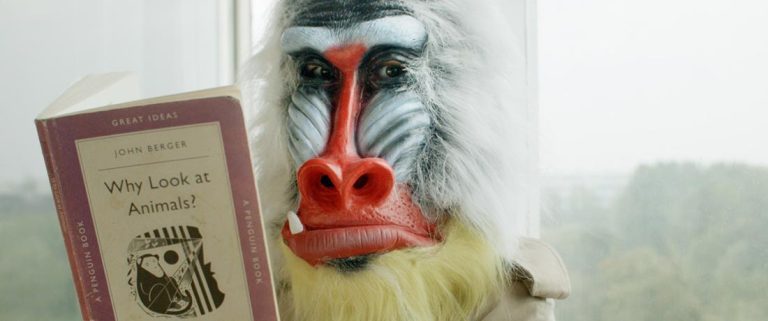



In 1973 Berger abandoned the metropolis to live in the tiny Alpine village of Quincy. He realized that subsistence peasant farming, which had sustained humanity for millennia, was drawing to an historical close. He determined to spend the rest of his life bearing witness to this vanishing existence, not least by participating in it. Berger’s trilogy Into their Labours chronicles the peasant life of this Alpine village and its surrounding countryside. Our portrait places Berger in the rhythm of the seasons in Quincy.
The four essay films which comprise The Seasons in Quincy each take different aspects of Berger’s life in the Haute-Savoie, and combine ideas and motifs from Berger’s own work with the atmosphere of his mountain home. Each film was created as an individual work of art but they combine to make a feature film. The Seasons in Quincy shows how film can move beyond text, and beyond fine art, to offer a multifaceted and multilayered portrait. These are more than documentary films – they are exercises in thinking in film.

Colin MacCabe is a literary critic and film producer. For more than thirty years he has taught at the University of Pittsburgh where he is Distinguished Professor of English and Film. He has produced films including Derek, Young Soul Rebels and Distant Voices/Still Lives. Before setting up the Derek Jarman Lab in 2012, he produced for the British Film Institute and Minerva Pictures. His latest book is Perpetual Carnival: Essays on Film and Literature (Oxford University Press: forthcoming).

Christopher Roth is an artist and a film and theatre director. He edited Andi Engel’s Melancholia in 1989. His film Baader won the Alfred Bauer prize in the 2002 Berlinale. Represented by Esther Schipper Gallery, Berlin, he participated in the Venice, Berlin and Sao Paulo biennials. His 1982 novel “200 D” was reprinted in 2012 by Bloomsbury/Berlin publishers. “80*81” and “2081 What Happened?” were projects involving more than 40 worldwide theatre performances and generating 13 books. His latest feature film was Hyperstition. In 2016 Roth will make Jeanne und Jean. Und Otto, a coming-of-age film on the Otto Muehl Commune. He lives in Berlin Lichtenberg and is just about to get three goats.

Bartek Dziadosz is the director of the Derek Jarman Lab, a graduate filmmaking hub at Birkbeck, University of London. For The Seasons in Quincy, he was Director of Photography on Spring, A Song for Politics and Harvest, Co-Director of A Song for Politics and Editor of Harvest. Dziadosz studied Law in Cracow and Contemporary Media Practice at the Westminster Film School. He now combines his doctoral research on editing as cognitive and cultural practice with a busy career filming and editing and he designs and teaches the Lab’s training programmes.. He has recently edited a film about the heroes of Solidarity, The (Un)finished Portrait of Lech Walesa. His own feature-length documentary on the sociologist Zygmunt Bauman, The Trouble with Being Human These Days, has screened at festivals around the world.

Tilda Swinton has been involved with filmmaking in one way or another for thirty years. The first film she worked on was Caravaggio which won a Silver Bear at the Berlinale in 1985, the first of the seven films she made with Derek Jarman before his death in 1994. Other filmmaking collaborators include Sally Potter, Jim Jarmusch, David Fincher, Wes Anderson, Joel and Ethan Cohen, Lynne Ramsay, Lynn Hershman, Tony Gilroy, Luca Guadagnino and John Maybury. She keeps making cinema pretty much exclusively because of the source it proves to be for her of long-running and life-enhancing friendships and because she loves to go to the pictures. Meanwhile, she is a writer and a co-founder of both the “8 and a Half Foundation”, towards the cine-passion of children globally, and of Drumduan, a pioneering exam-free school in the Highlands of Scotland, where she lives with her twins, sweetheart, four dogs, 11 hens and a tortoise.
